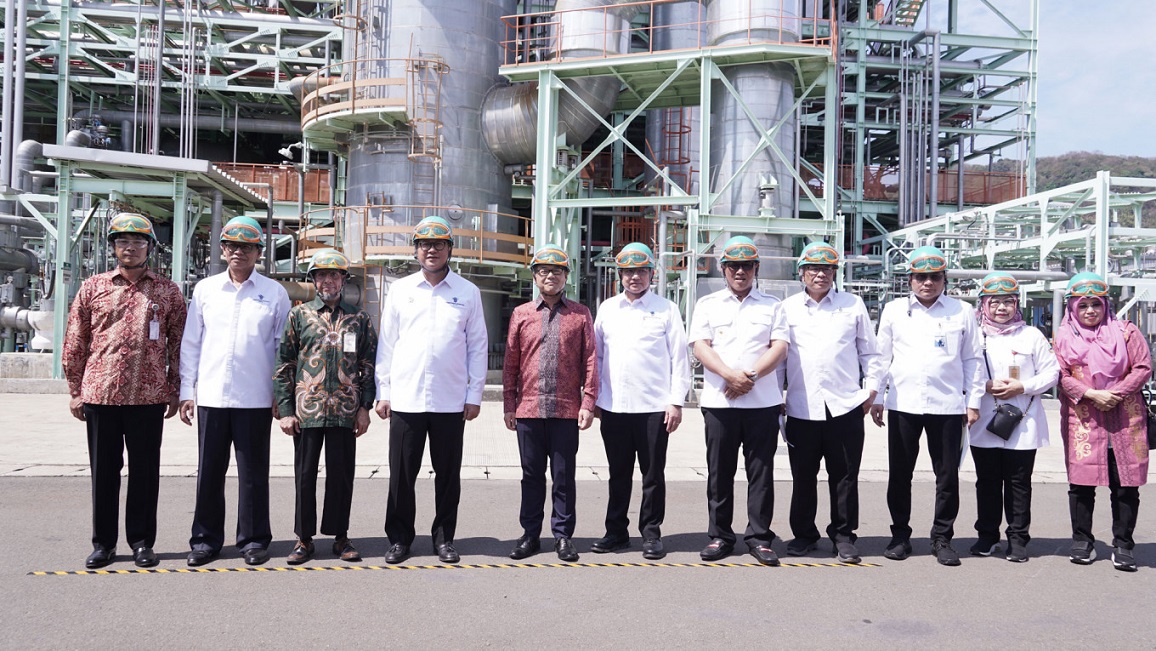News
Nippon Shokubai Indonesia to Invest Rp1.69 trillion in Fourth Expansion Phase by 2025
Front Row (The Jakarta Post) September 21, 2024 (Investment Ministry/Investment Coordinating Board)
(Investment Ministry/Investment Coordinating Board)
Investment Minister and Investment Coordinating Board (BKPM) Chairman Rosan Roeslani has commended Nippon Shokubai Indonesia for its commitment to advancing the petrochemical industry in Indonesia. The company is set to commence construction of its fourth expansion phase in Cilegon Regency, Banten Province, in 2025 with operations expected to begin by 2027.
"I appreciate Nippon Shokubai's long-term investment, which began in 1996. I am now visiting during the fourth phase of development, which involves an expansion valued at approximately Rp1.69 trillion [US$110 million]," Rosan said during a visit to Nippon Shokubai Indonesia's facility in Cilegon Regency to review the progress of the Japanese company’s investments in Indonesia.
Rosan highlighted the government’s commitment to safeguarding existing investments. “We must not only focus on new investments but also ensure that those already in place are well-protected,” he said.
"This approach serves as a marketing tool, creating positive word-of-mouth among other investors considering investing in Indonesia," Rosan added.
According to Investment Ministry/BKPM data, Nippon Shokubai Indonesia began its commercial production in 1999 with its first facility. Since then, the company has continued to expand, with the second facility commencing commercial operations in 2014 and the third in 2023.
The forthcoming expansion is expected to benefit not only the company but also the surrounding community.
“The fourth phase is scheduled to begin construction in 2025, with production anticipated to begin in 2027. This will also enhance the role of human resources in Cilegon, supporting growth and development. The government has vocational and training programs to support this,” Rosan said.
Previously, Nippon Shokubai Indonesia announced plans for a fourth industrial expansion with an investment of around Rp 1.69 trillion. The new facility will focus on producing superabsorbent polymer (SAP) for the first time in Indonesia, with an annual production capacity of 50,000 tonnes. SAP is crucial in the manufacturing sector, particularly for products requiring high absorption such as diapers and sanitary napkins.
“As long as the investment operates within legal boundaries, we will fully support and facilitate Nippon Shokubai's investments. The government also offers a super tax deduction program, providing tax incentives of up to 200 percent,” Rosan said.
This visit underscores the government's commitment to encouraging foreign investments that add value to the national industry and create job opportunities for the local population.
In the past five years, Japanese investments in Indonesia have surpassed US$19 billion, with key sectors including automotive, electricity and gas and residential and industrial areas.

